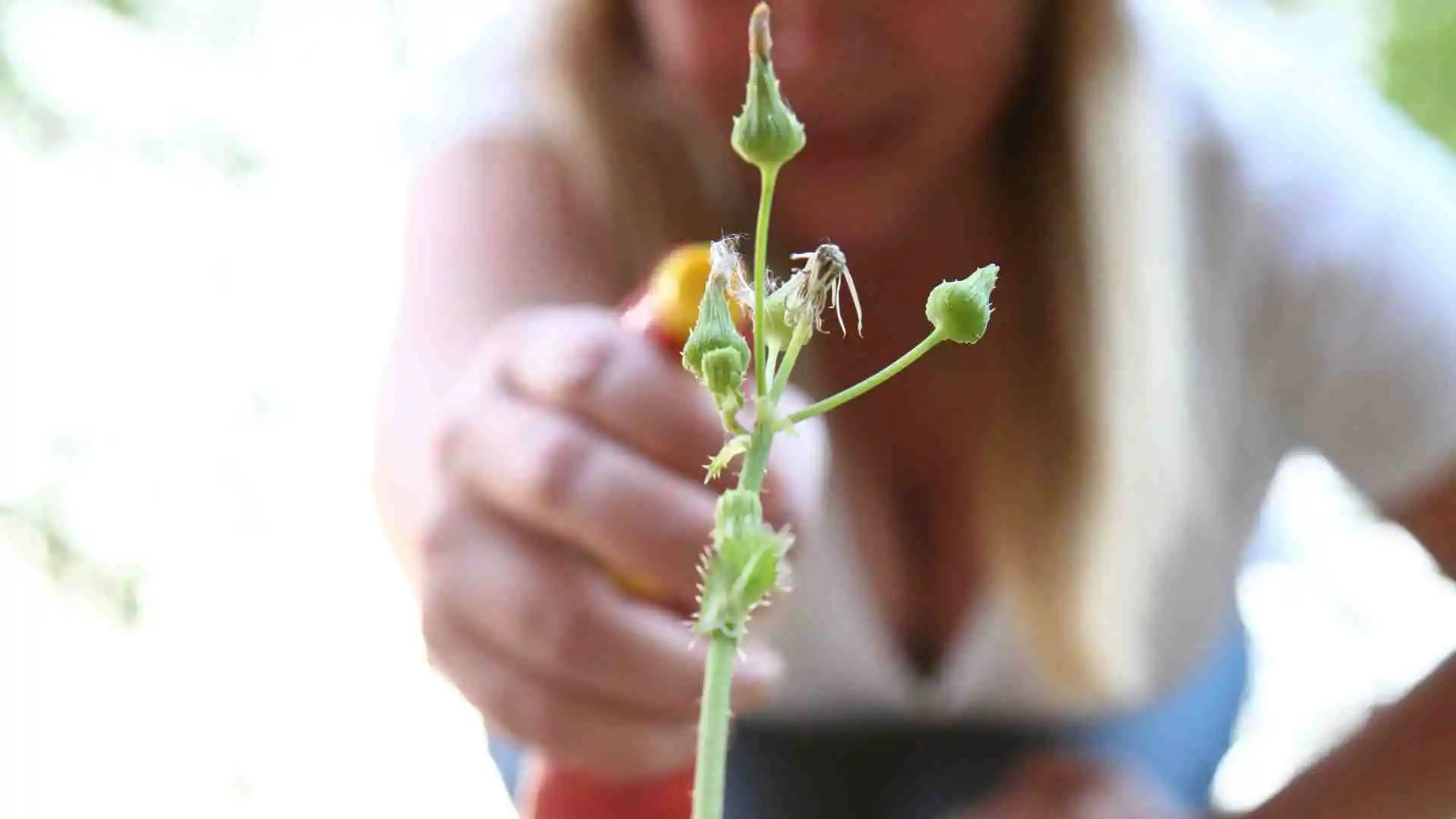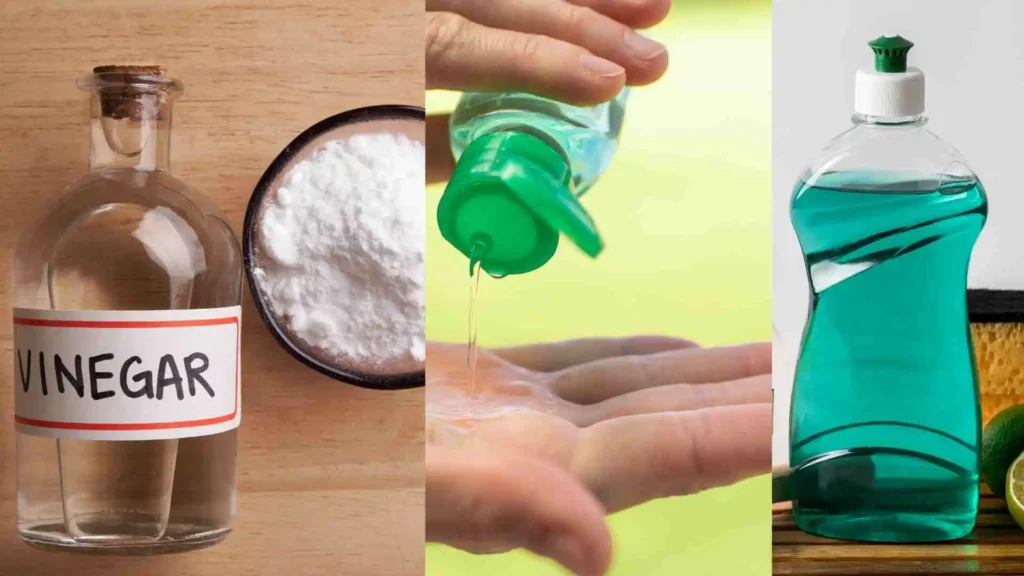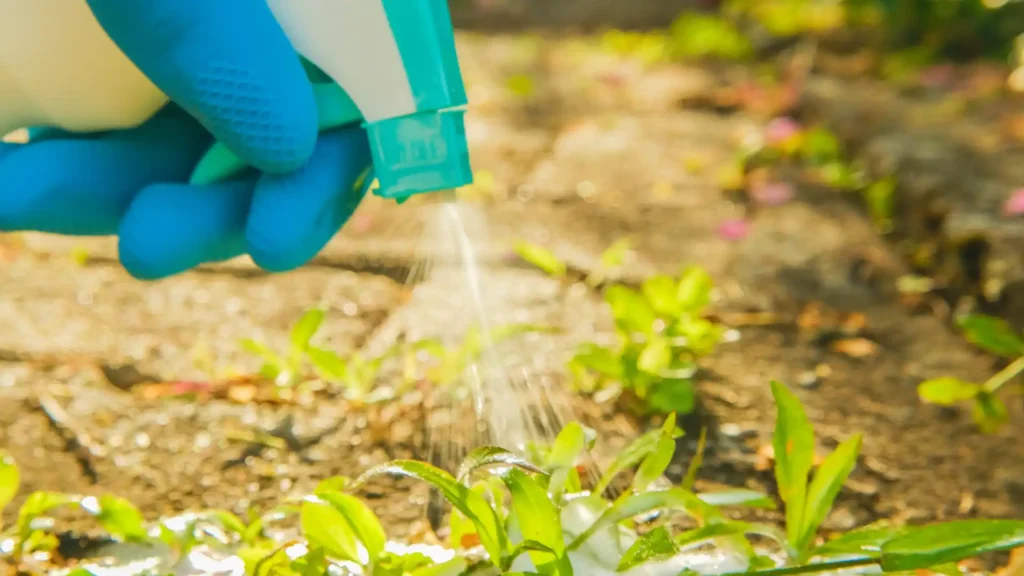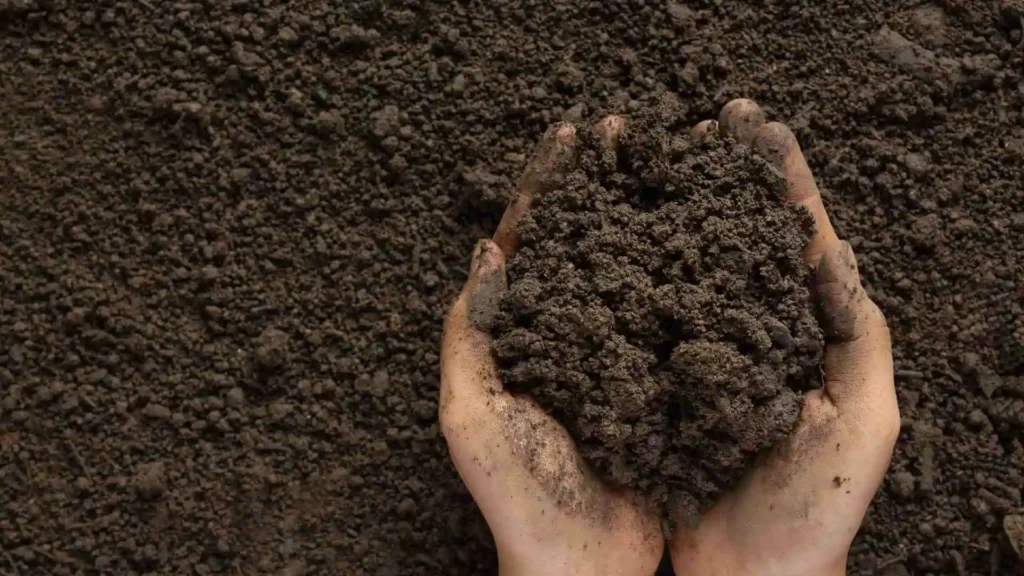Homemade Weed Killer: Effective, Natural DIY Recipes

Fed up with stubborn weeds taking over your flower beds or pathways? There is no need for harsh chemicals to reclaim your space. Grab a few simple items from your kitchen to do the job. Using ingredients such as vinegar, salt, and dish soap, you can make an effective homemade weed killer in just minutes.
These safe, eco-friendly DIY recipes have successfully helped people get rid of stubborn weeds permanently. These are effective, safe, and won’t break your bank. In this guide, discover how to kill weeds naturally and permanently using homemade weed killer.
Why Use Homemade Weed Killers Instead of Chemicals?
A lot of gardeners use herbicides for weed control; however, homemade options are safer for smaller areas. Here is why you should be using homemade weed killer instead of harsh chemicals.
Less Toxic and Safer for Your Family
The store-bought weed killers contain toxic chemicals. Vinegar, salt, and dish soap combine to create a safe homemade weed killer. Such ingredients ensure safety of edible gardens, children and pets.
Affordable and Easily Accessible
Store-bought weed killers can be costly, especially for large areas. Homemade mixtures don’t break the bank. They only use ingredients that are easily available in the kitchen.
Eco-Friendly and Safe for Soil and Water
Homemade weed killer poses a lesser threat to soil or waterways as it breaks down quickly in nature. This makes them safer for surrounding ecosystems, including aquatic life.
Safer for Pollinators
The commercially available options tend to include glyphosate, which does a lot of damage to bees and other pollinators. The homemade options are free of such toxins. Hence, they help sustain the vital ecosystem balance of your garden.
Simple to Prepare and Use
DIY weed-killer recipes only require items found in the kitchen, along with a simple spray bottle. All you need to do is mix. You don’t need any specific gear or store runs. This makes preparation and application an easy task.
Key Ingredients and What They Do
Each ingredient in a homemade weed killer targets specific parts of the plant and dehydrates them. Here’s how the key ingredients work together to deliver quick results without harsh chemicals.

Vinegar (Acetic Acid)
Vinegar can cause the weed to die. This is because the acetic acid damages the leaves, causing them to wither. Household vinegar contains 5% acetic acid. Vinegar weed killer is ideal for younger weeds.
However, horticultural vinegar has 20%-30% of acetic acid concentration. It works effectively on tougher growths. Because it does not affect roots, you must repeat the treatment.
Salt (Table, Epsom, Rock)
Salt causes dehydration. Its ability to absorb water from tissues and soil causes weeds to die. You can use table salt, Epsom salt and even rock salt for this purpose.
However, these salts can stay in the soil, which can be detrimental to future plant growth. So, only use salt weed killer in areas where no plant growth is desired.
Dish Soap (Surfactant)
While dish soap alone won’t kill weeds, it can enhance the effectiveness of homemade herbicides. As a surfactant, it allows vinegar and salt to adhere to foliage and penetrate instead of running off. A few drops significantly increase effectiveness, particularly for stubborn or waxy weeds.
Rubbing Alcohol
Rubbing alcohol targets tough, waxy weeds by breaking down their outer layer. This helps accelerate dehydration. It is particularly helpful in targeted areas around desirable plants. You can use it to strengthen the vinegar or salt treatment.
Core Homemade Weed Killer Recipe
How to kill weeds without chemicals? Use this natural and simple recipe often used by gardeners to avoid chemical herbicides. You can use this effective weed killer on driveways, sidewalks and other areas devoid of lawns.
Ingredients:
- 1 gallon of white vinegar ( 5% acetic acid)
- 1 to 2 cups of salt (either table or rock salt)
- 1 tablespoon of liquid dish soap
Directions:
For optimal results, combine all the ingredients in a large container or garden sprayer. Apply directly onto the weeds on hot, sunny days.
The combination of vinegar and salt draws moisture from the plants, while the soap will enable easy adherence of the solution to the leaves.
Alternative Natural Weed Killer Methods
As awareness of the environment increases, so does the need for pet-friendly and organic weed control. Below are some natural ways to kill weeds without using any chemicals.

Rubbing Alcohol Weed Spray
When rubbing alcohol comes in contact with the weed, it causes them to dehydrate. To use, mix 1 quart water with two tablespoons of isopropyl alcohol. Apply this mixture through a spray bottle on the leaves.
The best time to apply is during sunny days. This technique works best on small weed infestations, especially if there are desirable plants around.
Boiling Water
Boiling water is effective in killing soft plant tissue on contact. Hence, it is beneficial when dealing with weeds in the cracks or pavers.
It works best on small, stubborn weeds. It is advised to use a kettle for targeted pouring. Discover how to get rid of ants using boiling water.
Corn Gluten Meal
An organic herbicide, corn gluten meal stops weed seeds from germinating. You must apply 20 pounds per one thousand square feet in early spring or late summer, followed by a light watering.
It is excellent for lawns and vegetable gardens post-seed germination and becomes more efficient over time.
Flame Weeder / Torch
Flame weeders kill weeds with intense heat that ruptures their cells. They work best on small weeds growing in walkways, gravel, or other non-flammable regions.
This method is environmentally friendly and chemical-free, leaving behind no residue aside from charred vegetation. However, not all types of weed are bad.
Step-by-Step Application Guide
Proper homemade weed killer application ensures maximum effectiveness while reducing potential harm to other plants, people, or oneself. These are some of the steps to observe:
- Spray on a calm, sunny day around midday
Do not apply herbicides during windy conditions. Many types of herbicides work better with sunlight. The calm weather helps prevent drifting to other plants.
- Direct spraying at appropriate target areas
Focusing the spray on the unwanted plant’s foliage guarantees optimal absorption. This increases its effectiveness.
- Avoid desirable plants
Exercise caution when spraying flowers and vegetables you intend to keep. Shield them for their protection if they are close by.
- Protective goggles and gloves for safety
Protective gloves and goggles must always be worn. This will save your eyes and skin from chemical exposure while spraying.
Environmental Considerations & Safety Warnings
Even though DIY options are praised as they are weed killer safe for lawns but they need to be used properly. Let us delve into how homemade weed killer can negatively affect the soil and garden ecosystem if applied improperly.

Salt and Vinegar Affect Soil Health
The use of salt and vinegar not only kills weeds but also does considerable harm to the health of the soil and its microbes.
Salt’s gradual accumulation is harmful to the fertility of the land and the growth of plants. The use of vinegar changes pH levels, thus damaging surrounding plants.
Avoid Treated Areas for Planting
You must not plant in areas where homemade salt or vinegar weed killers have been used for some time. The ingredients stay in the soil and can inhibit the germination and sprouting processes.
When tending to lawns, it is advisable to avoid using salt-based herbicides as they damage turfgrass.
Keep Off Pollinator Zones
Though vinegar sprays may harm pollinators like bees through contact with the treated plants, they’re safer than synthetic alternatives. Do not use herbicides near flowering plants or pollinator zones.
Apply targeted spraying during warm, wind-free periods to eliminate chances of drift and runoff onto unintended areas.
When to Use Commercial Herbicides Instead
Homemade herbicide for the garden is an effective technique to tackle shallow and young weeds. However, they do not work on stubborn, deep-rooted types like dandelions or poison ivy.
If safer organic options fail, gentle commercial herbicides can help. The safe commercial options include:
- Pelargonic Acid
A natural fatty acid that quickly dries broadleaf weeds on contact. It is non-selective. Hence, apply with caution.
- Horticultural vinegar concentrate
This is stronger than household vinegar. Hence, handle it with care. It has proven to be effective in tough-to-reach areas.
It is best to use a balanced weed management program to deal with persistent, woody weeds, big infestations or unsafe conditions for hand-pulling. Learn how to get rid of fruit flies in your garden.
Conclusion
Homemade weed killer helps you get rid of stubborn weeds without spending large sums on expensive commercial products. Despite having limited effectiveness on deep-rooted weeds, these products excel at treating surface-level growths.
They are not just cheap but also safe for the environment. By using weed killer safe for lawns, you can protect pollinators and help keep soil and waterways clean. Your steady commitment will keep even the most stubborn weeds away permanently without requiring any chemicals.
FAQS
LATEST NEWS
DISCOVER MORE






